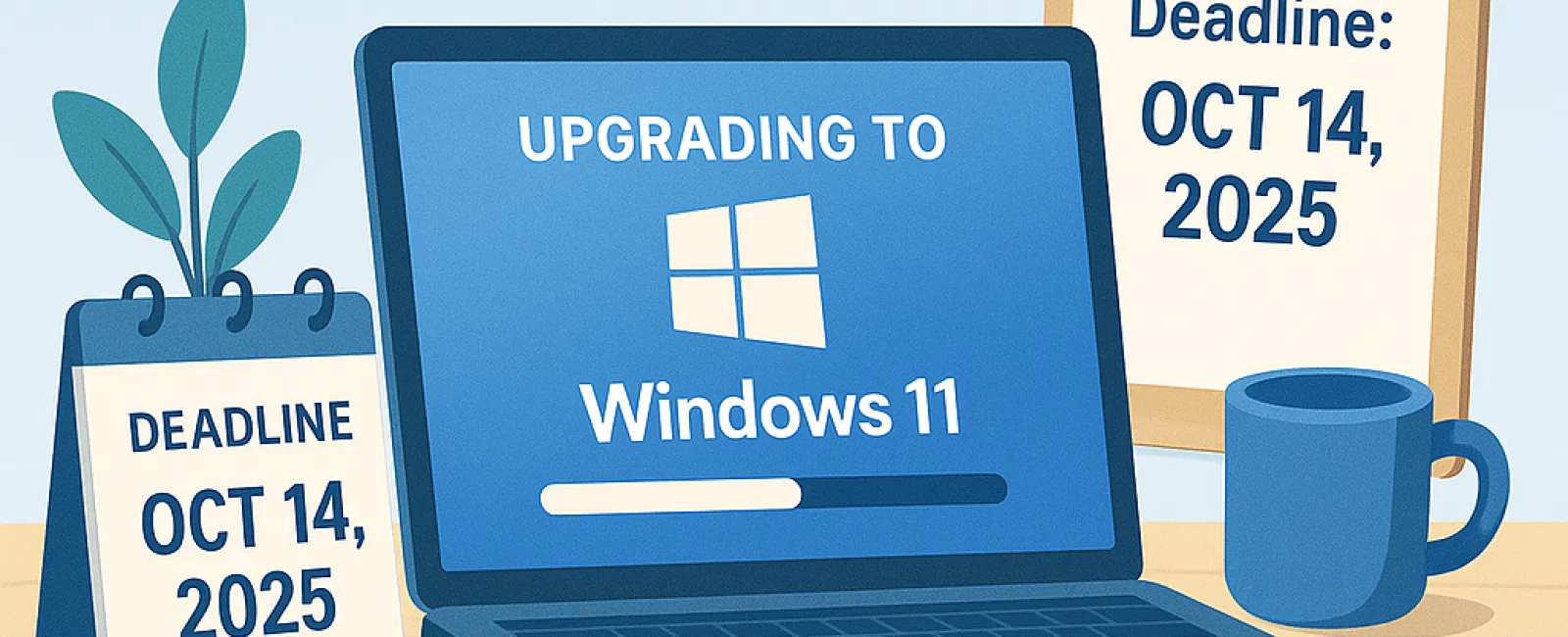June 23, 2025
If you're still using Windows 10 on your business computers, the deadline is approaching fast. Microsoft will end support for Windows 10 on October 14, 2025. After that date, there will be no more security updates, bug fixes, or technical support.
Business owners need to realize that delaying the upgrade isn't just about eventually needing to switch. It's about the potential costs of waiting right now.
"We'll Deal With It Later" Is An Expensive Strategy
Upgrading every computer in your business may not be an exciting expense, so it's tempting to put it off. But postponing comes with costs:
1. You're Operating Without A Safety Net
Once updates stop, any new security risks become your responsibility. Hackers target outdated systems because they are easier to exploit. It's like locking the front door but leaving windows open. One security breach could cost you thousands of dollars or even threaten your entire business.
2. Software And Hardware Compatibility Issues
Many business applications, including accounting software, CRMs, and industry-specific programs, are phasing out support for Windows 10. If your systems fail during critical tasks or client presentations, the cost could be significant. It's not just software — new printers, peripherals, and security tools may also stop working properly with Windows 10.
3. Lost Productivity
Older systems run slower, crash more often, and frustrate your employees. Even small delays add up, reducing efficiency, lowering morale, and hindering your ability to compete. If each employee loses 10 to 15 minutes daily due to technical issues, that adds up to a substantial cost each month.
4. Emergency Upgrades Are Always More Expensive
Waiting until a system crashes or users get locked out causes stress and forces expensive last-minute spending on emergency hardware orders, rush IT labor, and business interruptions while replacements are made. A little advance planning can prevent this scramble and save money.
5. You're Risking Compliance Violations
If your business handles sensitive information or must follow regulations like HIPAA or PCI-DSS, using unsupported systems could lead to fines or lawsuits. Many compliance standards require current security measures — Windows 10 will no longer meet those requirements after October 2025.
What Smart Business Owners Are Doing Now
They're preparing ahead, not only by upgrading devices but also by using this opportunity to:
- Review which devices need replacement
- Simplify tools and software
- Strengthen cybersecurity
- Plan IT budgets smartly for 2025
How To Make The Transition Smooth
Here are our recommendations:
- Run compatibility checks to identify which machines can run Windows 11 and which need to be replaced
- Audit your applications to confirm they work with Windows 11 or newer systems
- Budget for new hardware now to avoid supply chain delays
- Work with an IT provider to manage the upgrade process from start to finish, ensuring no downtime or surprises
Don't Wait Until October To Panic
Delaying until the last minute will cost you more in money, stress, and missed opportunities. We help small businesses upgrade in a planned, smooth way that sets them up for future growth.
Click here or call us at (210) 582-5814 to book your Discovery Call
and we'll help you identify what
needs upgrading, what can stay and how to build a transition plan that won't
disrupt your business before the deadline.




